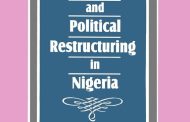The drumbeat for a Benue State governor of Idoma identity is getting louder and louder, three full years before the 2023 General Elections. Three years is still a long time in politics but for a cultural identity whose most famous folk saying is that the one legged cricket starts to burrow from early evening, the early start may not be surprising at all.
It must be the longest campaign or one of such in Nigerian politics, with many casualties since the Second Republic. The constitution of Benue State on the tribal tripod of Idoma, Igala and Tiv in 1976 collapsed in the 1990s when the Igala were taken away and paired with the Ebira to constitute Kogi State. Since then, it has been cry of woes on the part of the Idoma who are numerically inferior to the Tiv.
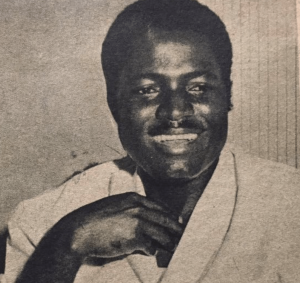
The late J. S Tarka and original campaigner for what is now Benue State
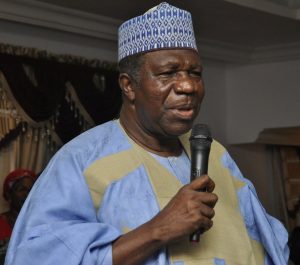
Senator Ameh Ebute, Tarka’s contemporary in the 2nd Republic as an NPN Senator
The first time this escalated was when the Tiv dominated Benue State House of Assembly declared the Idoma expelled from the State. Nigeria could not believe it but in a country where ethnicity underpins politics, that passed quickly into just one of those things. It had all started with a one page publication in the then National Concord detailing Tiv takeover of the state in all facets of government. Now, it may come without much ado as the much blamed Tiv resistance to its control of Benue State as well as the problems internal to the Idoma cultural group appear to be all evaporating considerably. While the active and silent advocates of power shift among Tiv elite are gaining traction, the forces in Idomaland suspected to have blocked the opening are somehow rethinking or believed to be no more keen on that.
And so, there is a blooming of Idoma governorship activism carried out openly but devoid of the animosity of yester years. Associated with that is also a ballooning of theories, guess works and hypotheses in Otukpo, Gboko, Makurdi, Abuja and London. It is all a matter of local Nigerian geopolitics of power. In the absence of an anointer or positive godfather such as the broadminded Joseph Tarka or the late Chief Solomon Lar to preside over leadership recruitment in the Middle Belt of today, how might this coming Idoma moment be made into an exercise in high minded or elevated politics beyond the antics of street wise tricksters for whom governorship may be no more than a mission of power for power sake? In the context of the imperative of re-inventing leadership in Nigeria, might the Idoma be looking for a dreamer, a unifier and thus a smaller Mandela who can move the governance game from the conception of politics as a matter of one group dominating another to something about life more abundant for everyone?
Talking to though a limited number of persons on the prospects and piecing together tits and bits is showing thinking in this direction. There is no doubt about this just as everyone spoken to also talks about the agency question. The most fantastic ideals can be messed up or enriched by the person on the driver’s seat was how a very senior Idoma citizen put it. He was raising the question of who can excite the process to the satisfaction of the multiple stakeholders involved: from the Idoma caucus of elders to the popular masses, the Tiv nationality, the rich people who will fund the process in the absence of a crowd puller of a candidate or well organised political parties that can move the masses to die for them. Will the godfathers allow a popular candidate who doesn’t have money to emerge which has been a key problem of the Fourth Republic?
It is, indeed, an idea that is still evolving. It is not even clear if there is a strategic reading of power driving it beyond the sentiment of governor of Idoma origin in the Benue State that emerged when the Alago nation rejected being moved to Benue from Nasarawa State where they are today and when the Ette people in present day Enugu State were either not keen or didn’t get the idea of joining their Idoma kith in Benue State forcefully articulated enough. Benue State, in terms of ethnic balance became, along with three or four others, impossible states after the last creation of states by IBB regime. General Abacha was not hostile to the Idoma but not to the extent of creating the Apa State they demanded.
But an Idoma moment seems to be beckoning at last. What picture does anyone get from existing stock of the men and women upon whose agency the agendum may rest at last? Below is what Intervention’s tentative synthesis.
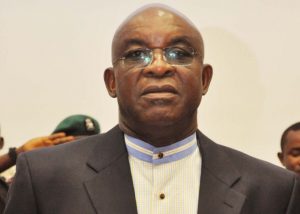
Senator David Mark of Apa State rhetoric fame
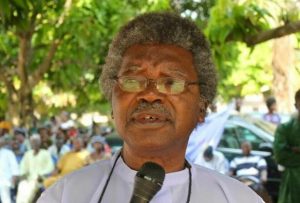
Chief Paul Unongo, a reported campaigner for power shift
Senator Abba Moro is routinely mentioned, even in what can be considered the most serious quarters. His current position as the Senator representing the Idoma appears to give him an edge. Of course, he has been a former chairperson of ALGON in the state and two time chairman of Okpokwu LGA who performed absolutely well in the first two years before running into political storms. But his greatest advantage is in his capacity as a mobiliser. All three speakers on him gave him an ‘A’ or the rating of a perfect mobiliser. In fact, someone said he is uniquely competent in speaking the Idoma language with unbeatable dexterity and impact.
He has got a name among the masses that also speaks volume. Dancing and clapping rural women have been observed in parts of Idoma speaking of him as “ojelalo nalo je a” which translates crudely into “it is the person who gives us we know”. In other words, he would not score low on generosity, the make or mar character trait in Idomaland. It could be said that in Idomaland, you are great or nothing depending on your rating on generosity.
The case against Senator Abba Moro is the low score on sophistication. The second is the contention that he seeks to maximize power. In other words, his critics see him as the anti-thesis of sharing power, with the implication of the problems of personal rule. Lastly, no one knows how his case in court from his tenure as Interior Minister may go. What is clear is that he would be a factor in the process if he reclaims his honour in court, although this is subject to how much resources he might still command as the process unfolds.
There is Dr. Sam Ode, the former Minister of State for Niger Delta under the Goodluck Jonathan Presidency. So far, he is the only one who has no soul destroying negativity against him. Unless if one or more negative attributes surface beyond gossip, he could carry the day if the governorship were to be decided solely on the basis of positive qualities. Everywhere, he is said to be kind. That is, he is not just generous but personable or pleasant and thoughtful. He is educated beyond certificate, has no known case of corruption yet and so on and so forth.
It is very unusual in Idomaland for anyone to get positive rating across the board the way Ode was portrayed. When the question of the inherent imperfection of the typical human being was pointed out to a discussant, the answer was surprisingly that, “I didn’t say he is above faults. You are asking me to score them from what I know as I sit here. I am not a politician and I don’t go about monitoring people”. Someone else somewhere said something similar, adding the point about “even when that guy comes into something late, you will see how he can carry everyone along”.
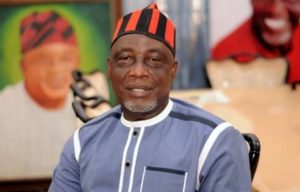
Senator Abba Moro
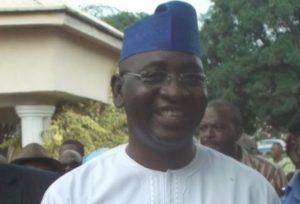
Dr Sam Ode
Intervention had to leave the argument at that without forgetting how Ode’s parentage will work for or against him. His mother is Tiv from Tarka LGA of Benue State. Would this not be electing another Tiv man since male children tend to defer to mothers more than anything else? Even in this, Odeh has a defender in the respondent who said that he had observed him at meetings where he told sitting governors how a particular decision will not go down well with Idoma people and so on and so forth. By implication, this elder was testifying to Ode’s dependability in terms of ability to articulate and defend Idoma interest, however Idoma interest is defined.
The name of Dr. Sunday Echono, the incumbent Permanent Secretary in the Federal Ministry for Education was mentioned repeatedly. The story told about him is that he is due to retire in a year or two and is believed he will be pressurized to join the field. Not having been a politician before, it means he will be the clean slate contestant should he join. No one would have any claims about him being power hungry or corrupt or arrogant.
But, as the same Idoma people say, it is when one is looking for a wife or political office that one really knows how he or she is perceived. It would, therefore, not be surprising if stuff begin to appear against him as soon as it is confirmed that he is interested or has been successfully dragged into the race. This is more so that already, the idea that he doesn’t pick his calls is up there. As usual, why he doesn’t pick calls doesn’t form part of such narratives. As someone who knows him absolutely well pointed out, it is true he doesn’t pick calls but only callers he doesn’t know. Rather, he is credited with being a very simple and principled person but who, as most principled people are, is on guard against people he thinks might be taking advantage of his simplicity.
Dr. Echono is not the only such name that came up. Dr. Isaac Egboga and Engineer Morgan Okwoche were mentioned severally. Egboga was actually said to have come close to beating Senator David Mark twice in Benue South PDP primaries before being pressurized each time to cool temper in each case. What that suggests is that he could be such a strong contender.
Engineer Morgan Okwoche, on the other hand, has a uniqueness of high community profile, including ownership of a radio station. The reverse side of that is whether the radio station was a political tool kit although that is neither here nor there since even a political radio can equally serve communal, business and even religious purposes simultaneously. He was a high profile technocrat with the NNPC from where he retired not long ago. He has three advantages: well connected beyond Benue State, well known in Idomaland and speaks the language everywhere contrary to many who lack mastery of it or think it is chick not to speak it.
Although this name came up in only a few times, it beat the minimum number of mention for inclusion as a contender on this list. That is Ambassador Dickson Akor, the proprietor of Nigerian Peace Corps. Those who reckon with him cited the peace corps which they interpret as a sign that he could be an institution builder of a governor. In other words, if he built an institution as an individual, then he should be able to build institutions or preside over the building of many other institutions as a governor. This is, however, about the only candidate whose defenders are also his critics in terms of doubt about depth.
Comrade John Odah, ex-General Secretary of the Nigeria Labour Congress, (NLC) also got the minimum mention to appear on this list. But he was probably the only one mentioned where most of those who mentioned him do not know him beyond that he was in the NLC. Although mentioned with intensity, some of those mentioning knew his NLC identity than his name, (evident from such expressions such as “that young man who was in NLC”, etc). Great as it is to be known by one’s tradition of politics and consummate bridge builder that an Idoma senior citizen called him, it would be surprising how Odah would fit into the politics atmosphere in Benue State. But they probably have a point. Someone who worked closely with Nelson Mandela as Odah did might be the man of the moment.
Odah and Ene Ede would be Idoma’s concession to the more authentic comrades since the title became vulgarized into a badge everyone began to prefix his name with in spite of having no roots whatsoever in the tradition of politics that makes one a comrade.
These are the main names at the moment. But it is an unfolding drama. A similar story in another one year from now could produce a completely different list.
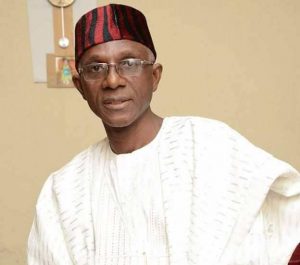
Barrister John Ochoga
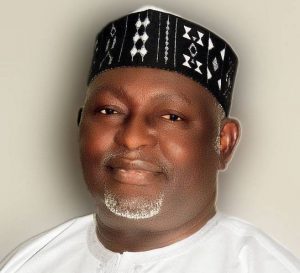
Engineer Morgan Okwoche
For instance, there is a thinking going on up somewhere why two particular individuals should not be drafted in and seriously considered. One is AVM Monday Morgan while the other is Barrister John Ochoga. AVM Morgan would have the sentiment against retired military officers very much against him but people are also asking if a military officer with the presence of mind to organise and leading the current momentum on Idoma governorship should not be a natural candidate at the end of the day. His military training and exposure means that he has a nationwide constituency to benefit from as a governor. It also means he has a professional identity and he is not coming from nowhere.
John Ochoga will have to battle the image of being a difficult person and being 66 years old but otherwise, the perfect candidate who can stabilize a momentous development like this. That is exactly the expression used by a discussant. Asked to explain how Ochoga is a difficult person, a politician said the problem is that Ochoga does not cheat, will not bring money to buy a political appointment and could be unbendable. “When people see all these, then they will say, leave that one alone”, he said. He went on to give Intervention an example of how Ochoga conducted the NPN Senatorial primaries for the election of a Senator to fill the vacant position left by the late Senator Joseph Tarka.
According to the claimant, that was the election in which both contestants – Senator Jacob Thilley Gyado of the Gyado dynasty and Barrister Sam Tsumba – went up to the podium to commend Ochoga’s conduct of the contest. “This was surprising because everyone concluded that Ochoga was going to favour Sam Tsumba because they are all lawyers”. Reminded that this happened so many years ago, the answer is that “that man hasn’t changed”
When Intervention took the testimony search to the community of lawyers, the verdict did not shift. There, his having attended the Obafemi Awolowo University, Ile-Ife was also brought up in a manner that took us back to the first elder who mentioned the imperative for someone who could stabilize a momentous epoch. Ochoga is argued to be courageous and listened to back in his constituency, a fine legal mind with access to the national technocratic community because of the Ife exposure.
Queried by Intervention why nobody mentioned such in the case of Senator Abba Moro who attended the University of Lagos, the response comes in the argument that the legal-technocratic community is a much more established actor and factor in Nigerian politics than any other. In other words, those who wish Ochoga were drafted are thinking so for considerations beyond the Ochoga persona. The only thing is that no one can reverse Ochoga’s age to a much younger one. Two, he is not known to have ever expressed desire for the position although his defenders dismiss such criticisms on the ground that Intervention must make a distinction between someone’s biological age and political age. Intervention did not argue further.
The names are coming even when there are no ground rules at the moment. Although these names cannot be dismissed, considering the sort of people talking – their age, experience in politics and the fact that, apart from two or so, none of them is ever going to seek political office again for the rest of their lives, the ground rules are no less important.
For instance, what level of education is called for? Just anybody with a degree or HND or some certificate? Is deep formal education what is primary or political education? Is there a zoning formula? This question is important because when the names of Dr Egboga and Engineer Morgan Okwoche came up, someone said they were Senate candidates rather than governorship candidates. The strategy, according to those pushing this position is that, for Idoma to block subversion of collective will, it must consider a hefty compensation for the Igede people by taking the Senator position there. Igede people have been agitating for autonomy from Idoma in what many Idoma cannot understand since Chief Abraham Ajene Okpabi, the longest reigning Och’Idoma, is of Igede origin.
If you zone Senate seat to Igede, that leaves the remaining seven LGAs in contest. Where does the governorship go? Is it to Apa area where Dr Echono comes from or to Edemoga where Abba Moro, Odah and Ede are from or to Otukpo/Adoka where both Sam Ode, Akor and AVM Morgan comes from, (i.e if Morgan were to accept being drafted). Or to Ado/Igumale Agila where Ochoga comes from, (again, that is if he caves in and if he has the money).
The other unsettled question is that of what development strategy would serve Idomaland, transform Benue State and serve as a corrective to the confusion at the federal level about how to handle rapid social change. Which of the plausible names on this list can most competently understand and supervise such an ambitious developmental radius? In other words, who is the most ideological of the lot, with a concern for such aspects of power beyond self-glorification, punitive expedition and primitive accumulation?
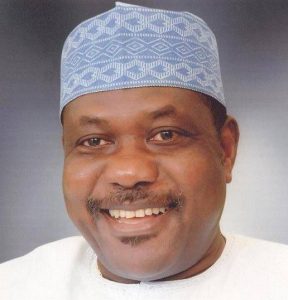
Immediate but one past governor, George Akume
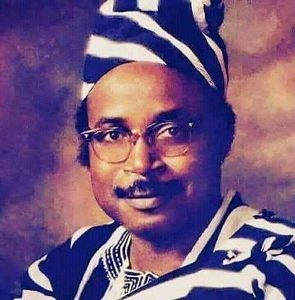
The late Aper Aku, first Executive Gov of Benue State
The fourth untouched issue is the Tiv factor. If the power shift occurs, the Tiv will be ceding power for the first time since the creation of Benue State. They would need to be assured that their interests are not threatened. In a state where neither the governor, Speaker of the House of Assembly and Chief Judge have never been anyone outside that ethnic group, such assurance is necessary. The assurance comes in no better form than the person of the governor. Who of these names so far would be favoured by this criterion?
This is considered a crucial question because, up till now, there are those who think agitators for Idoma governorship are chasing shadows. “How can you become the governor of a state where you are not qualified to become a director in the MDAs” was the query for the movement for Idoma governorship. The argument is that it is not a mistake that such is the case and the agitation could thus be seen as the handiwork of people who have not done their homework in situation analysis. Added to how a governor of Idoma origin could emerge when Idoma directors could not emerge is what Intervention was told to have been the case ever. That is how Idoma who emerged as Deputy-Governors have never really been chosen by Idoma by the powers that be. And how does a governor of Idoma origin reify him or herself when all the directors are non-Idoma? How does he redress the imbalance without being labeled as carrying out ethnic cleansing? Questions of this nature are popping up. Although they bear the mark of where they are coming from – civil service, they cannot be dismissed. That is not to say these sorts of reservations might not have been taken care by Tiv political leaders such as Chief Paul Unongo who have openly argued for power shift more than a decade ago. He cannot be alone because managing ethnic co-existence in Benue State has been an issue right from late 1999. At a point, a caucus in the Obasanjo regime came up with what they considered to be the answer to exclusion from power in states such as Benue. Their idea was for the losing side to be given all the two cabinet positions due to such states in the Federal cabinet as an unwritten law. Whether then President Obasanjo personally knew of this is not clear but those who might recollect would know that all ambassadors from Benue State in the first term were Idoma.
Obasanjo who had indicated interest in resolving the impasse in Benue and in all the states where that is the case, however, got distracted by his face-off with Atiku. George Akume and Iyorchia Ayu who were reportedly keen to ensure a power shift fell into different camps in the wake of the conflict. Local pressures against power shift compounded the situation. Incoherence within Idoma itself added to all these to bury the achievability completely until the current renaissance of a sort. Unlike Obasanjo as president, Buhari is not popular in Benue to be able to use his Good Offices mechanism to resolve the issue. Although politicians can be funny, the anti Hausa-Fulani consciousness in the cultural Middle Belt now has denied Buhari the moral authority to make any headway by means of a presidential intervention similar to what Obasanjo was thinking during his time.
The last point would be the external factor. Benue State is of geopolitical interest in Nigerian politics and deciding who becomes the governor is not going to be an exclusive Benue affair. All the vital centres of power in Nigeria would be watching with keen interest. It doesn’t always work out but each of them would try in different ways. Most recent governors were influenced by interests external to the state. This will continue even after a governor is installed. So, who of the existing names as well as new names that might enter the list would most skillfully manage such interests without resorting to rhetorical flourish?
It promises to be an interesting moment to observe from the sideline!






